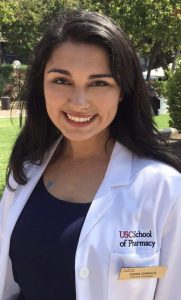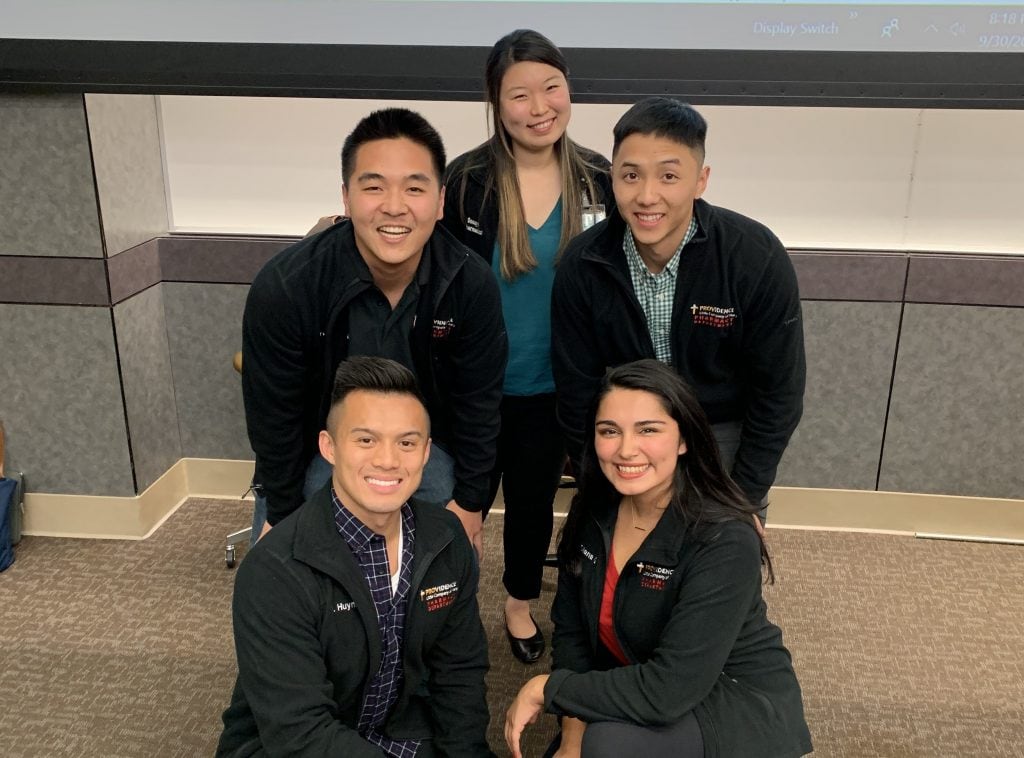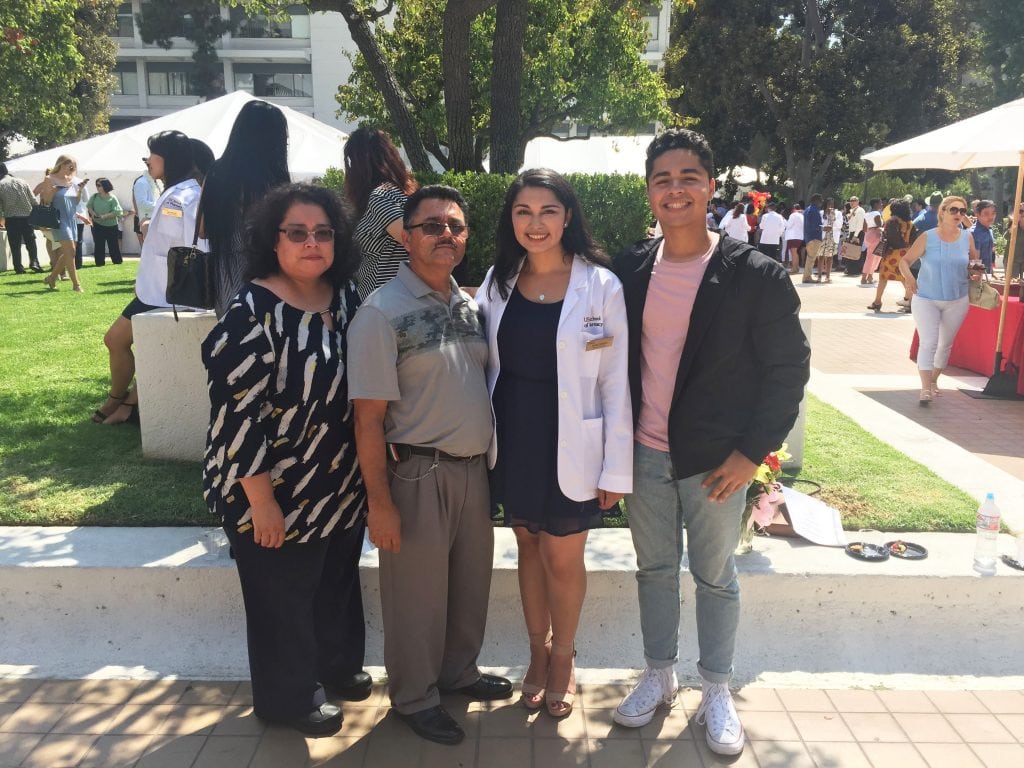 What attracted you to the field of pharmacy? Any particular moment(s) that made you stop and think, “This is the path I want to take?”
What attracted you to the field of pharmacy? Any particular moment(s) that made you stop and think, “This is the path I want to take?”
The funny thing is that I actually started out my undergraduate career at UCLA with an aversion to choosing to major in a science-related field. I was more interested in political science, but I realized that it wasn’t challenging me in the way that I wanted, so I gave the sciences a shot. My experiences in my first few science classes gave me the confidence to declare a biochemistry major, but I still had no idea what career to pursue at that point. I worked in a biochemistry research lab to see if graduate school in that field was an option for me. Instead, that experience made me realize I wanted to do something that involved more patient interaction and utilized more clinical knowledge.
I eventually decided that pharmacy was one of the most closely related healthcare careers to my major, but I still wanted to get a feel for the profession before I committed to it. As a result, I ended up becoming a licensed pharmacy technician and began working at CVS. Looking back, that was a great decision because I got to see pharmacists problem-solving on a daily basis. From the community pharmacy perspective, pharmacists are often the middlemen tasked with relaying patient or insurance policy requests to physicians, creating better therapies with physicians when potential drug-drug interactions occur, and effectively communicating prescriptions to patients. This ability to solve problems, as well as the opportunity to learn new things throughout your career, appealed to me greatly.
You were awarded the 2019 CVS Health Minority Scholarship for Pharmacy Students. Why do you think it’s important for more individuals from underrepresented backgrounds to enter the pharmacy profession, particularly for a place like Los Angeles?
Prior to me beginning pharmacy school, I looked up the statistics and read that the pharmacist workforce was only 5 percent Latino, which was a shock to me. I think representation in this profession is extremely important, especially considering Los Angeles has a large Latino population. It’s important to come into patient interactions with a cultural understanding of their experiences with healthcare. Anytime you can create a more inclusive space for patients is always a great thing, as it can help you identify a potential healthcare concern before it becomes a bigger problem or affects their quality of life.
Additionally, I think representation is important because you become someone’s possibility. For those who don’t come from backgrounds where a family member has given them exposure to a career option, representation is extremely important because it shows them the possibilities that are out there. By creating more spaces for minorities in pharmacy, we can help create a more diverse pharmacy profession, and healthcare field in general, resulting in the better overall quality of healthcare.
Why did you choose USC School of Pharmacy?

By reputation, USC School of Pharmacy is a well-regarded school that’s known for constantly innovating its curriculum to push the boundaries of the profession. However, I think the strength of the alumni network was equally influential in my decision. Almost every pharmacist I’ve spoken to has stressed that who you know is just as important as what you know when it comes to securing a job. USC School of Pharmacy gives me both sides of that equation so that I’m not only well prepared, but also given tremendous support in the form of the Trojan Family.
What’s one of the best/most memorable experiences you’ve had at the school so far?

The White Coat Ceremony was the most memorable experience I’ve had thus far. As a first-generation college student and now graduate student, it was really meaningful for me to have my family there in the crowd supporting my entrance into the profession at a pharmacy school that I didn’t expect to get into. Pursuing a doctoral degree wasn’t something that was ever expected of me growing up, so I think the fact that I am has become a big source of pride for my family. I definitely wouldn’t be able to take on this program without them.
What are your career aspirations? In general, how do you feel about the outlook for the pharmacy profession?
I’m still open to different fields within pharmacy. I currently work outpatient and inpatient jobs, so I continue to gain experience in those areas. So far, I love the patient interaction I get from outpatient, but I also find inpatient pharmacy a bit more clinically stimulating. Right now, I feel like ambulatory care pharmacy could give me the best of both worlds, so that is my current interest. I’ll likely pursue residency, so that would be the next step in my pharmacy career.
The field of pharmacy continues to become more competitive. Technological innovations are having huge influences on the field, which I believe will replace a lot of the more repetitive tasks that don’t require clinical knowledge. However, nothing can substitute the experience and ability of a pharmacist to assess a patient, so I think clinical pharmacy will become even more important, especially as we continue to see physician shortages in the workforce.
What’s a fun fact about you that not many people know about?
I don’t drink coffee! How I get through exams, even I don’t know.

